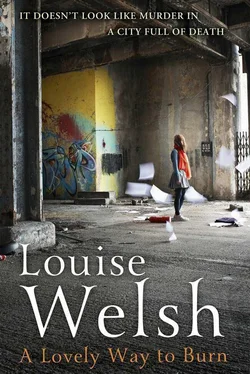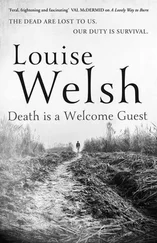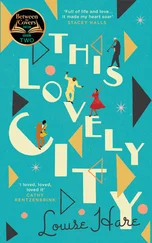‘It sounds like the cure might be worse than the disease.’
‘That’s where you’re wrong.’ Iqbal was as enthusiastic as a new convert. ‘Cerebral palsy is a horrible disease and these are sophisticated devices. The pumps deliver minute trickles of medication through a tiny tube implanted in the spinal cord. We’re talking microsurgery.’
‘So, did it work?’
‘According to the studies Simon and his team set up it worked very well indeed, much better than they’d anticipated. There was only one problem.’
Iqbal paused and Stevie realised that he was waiting for her to ask what the problem was.
‘What?’
‘The treatment was expensive. It would cost around five thousand pounds to insert the pump, another two thousand two hundred pounds every three months to fund the drug, plus another eight hundred pounds every three months to top up the pump. It could go on for as long as the child lived, into adulthood, into old age. People say you can’t put a cost on a life, but these funding bodies in the National Health Service do exactly that. They have to or there’d be no money left for anything else. They ruled that the treatment was too expensive for the NHS to license. But the team had got their teeth into the project.’
Stevie tried to push images of teeth and dissected spines from her mind.
‘What did they do?’
‘They found a pharmaceutical firm that would manufacture their form of the drug, set up their own company, Fibrosyop, and decided to offer the treatment privately.’
It chimed with what Nurse Webb had said.
‘So only rich people could afford it?’
Iqbal leant forward. ‘Do you have kids?’
The question was unexpected. It made her think of Joanie and Derek, the IVF treatments Joanie had only told Stevie about after Derek had left.
‘No.’ Stevie stretched her shoulders, trying to loosen the knot of muscles in her neck.
‘Neither do I,’ Iqbal said. ‘But I know that if I did, I’d do anything for them.’
‘I guess that’s the way it’s meant to be.’
‘Exactly.’ Iqbal smiled. His teeth were white, and so evenly spaced he could be mistaken for an American. ‘So it wasn’t only rich people who accessed the treatment. Parents raised money in whatever ways they could. Some of them more or less bankrupted themselves.’
‘A nurse I spoke to said that by offering the treatment privately, Simon and his colleagues hoped they’d find a way to make it cheaper.’
‘No doubt. But I’m betting they got rich in the process.’
Stevie remembered Simon’s exclusive apartment, the fast cars, five-star hotels and expensive meals.
‘I don’t see where this gets us. It might not be the prettiest story, a bunch of doctors profiting from sick kids, but they weren’t doing anything against the law.’
‘That’s true. But the treatment wasn’t fail-safe.’ Iqbal flicked through the sheaf of papers. ‘The raw data on Simon’s computer is a record of results of the trials they did. I haven’t worked my way through all of it yet, but it seems straightforward enough so far.’ He pulled a page from the pile and handed it to her. ‘I did, however, take a break from the data to do a bit of extra digging. Have a look at this.’
He maximised a window on the laptop and a website burst across the screen. The site was simple, an amateur job, but it had been made with passion.
DO NOT TRUST YOUR CHILDREN TO FIBROSYOP screamed the banner. A photograph of a smiling girl, wearing a party dress and glittery doodle boppers, took up most of the screen. It had been taken at Christmas-time and a silver tree, decorated with tinsel and baubles, sparkled in the background. The image was so full of colour that it was an instant before Stevie realised that the girl was in a wheelchair, her neck supported by a headrest. The text surrounding the photo was a passionate invective against Fibrosyop.
Joy Summers had been seven years old when she had died after undergoing treatment by Simon’s team. Her father was convinced that the doctors were to blame. Stevie wondered if Mr Summers had written his report of his daughter’s early death in the first throes of grief. His pain resonated in every accusation.
‘This is the treatment that Simon helped to develop?’
‘One and the same. I don’t know if he was justified or not, but Joy Summers’ father had a definite grudge.’ Iqbal clicked on a link to a newspaper article, with the air of a magician completing a trick. ‘After his daughter died, his wife committed suicide. They had already sold their house to pay for the treatment. He lost pretty much everything.’
Stevie scanned the article. Polly Summers had taken an overdose. Her husband Melvin had found her lying in their daughter’s bed, the child’s photograph face down on the sheet beside her.
‘Horrible.’
‘Imagine how it was for Melvin Summers. Maybe he decided he had nothing left to lose and took the law into his own hands.’
‘Simon was killed by someone with medical knowledge. They managed to make his death look natural.’
Iqbal grinned. ‘Did I mention that Mr Summers was a dentist? These guys are experts in anaesthetics. He’d know the best way to knock someone out, and the difference between a long sleep and the big sleep.’
‘I don’t know.’ Stevie spoke gently, not wanting to rain on his parade. ‘Mr Summers may have had a motive, but why would that make Simon hide his computer in my flat? I’m not sure it ties up.’
Iqbal’s smile faded. She could see his zeal waning, tiredness winning the battle. He screwed up a piece of paper and tossed it in the wastepaper basket.
Stevie asked, ‘What was that?’
‘Summers’ address.’
Stevie fished the paper from the bin and smoothed it flat. It was a close-up of a leafy cul-de-sac taken from Google Earth. The street had been surveyed on a bright, sunny day. A woman walking a golden Labrador was frozen mid-step outside a red-roofed apartment block. One of the flats was ringed in blue felt-tip. The street might have been anywhere in the city, were it not for the address printed neatly in the margin.
‘How did you find it?’
‘It was easy. Summers isn’t such a common name and the report on his wife’s suicide gave his age. I found him on the electoral role and cross-checked against council tax records. It took less than ten minutes.’
Iqbal picked a cluster of paper clips from a jar on the desk and started to thread them together. There was something self-conscious about the way he was avoiding her gaze. A thought occurred to Stevie and she asked, ‘Did you check up on where I live too?’
Iqbal let the chain of paper clips fall back into the jar. She saw a blush spreading across his face and laughed. It was a welcome release.
‘I looked you up on the Web. I’m afraid Shop TV is a little loose with info about its presenters. It gave me more than enough to go on.’ Iqbal took a piece of paper from his pocket, crumpled it into a ball and sent it into the bin. ‘That’s another problem with the Net. It’s too easy to find out things you shouldn’t want to know.’
Stevie had a sudden urge to take his hand in hers. She clasped her fingers together.
‘I’ll check Melvin Summers out. You’re right, he might be a lead.’ She laughed again. ‘Listen to me. I sound like a real detective.’ This time she reached out and touched him. ‘You should get some rest.’
Iqbal looked beyond her, out towards the lights of the city. Now that he was no longer absorbed in the documents his mouth had a worried set to it.
‘I shouldn’t have looked up your address.’
‘It’s okay.’ Stevie gave in to her impulse and sandwiched his hand between hers. Iqbal’s fingers felt warm and dry. She squeezed them. ‘I’m flattered.’
Читать дальше












